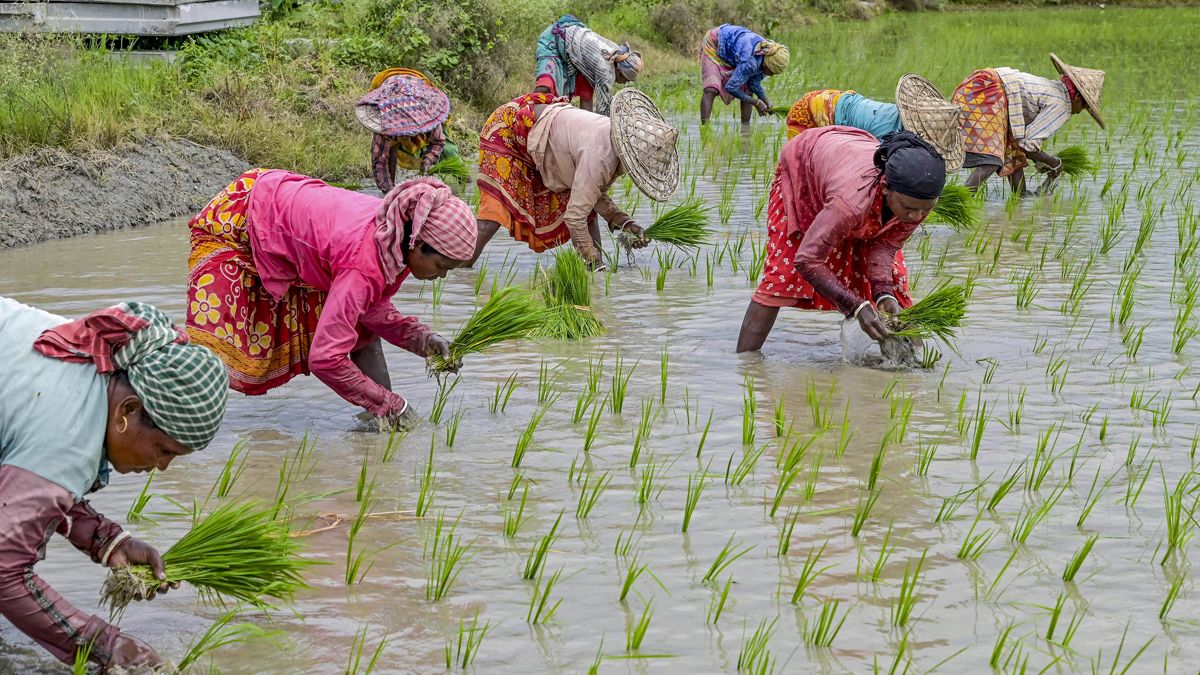OPINION | Rural women: The architects of India’s future
 Representative image | AP
Representative image | AP
In the first light of dawn, a woman in a remote village steps into her field. She carries not just seeds, but the weight of her family’s livelihood, the hopes of her community, and the quiet determination to shape a better tomorrow. Her hands know the soil intimately; her eyes survey a landscape that is as challenging as it is full of promise. She is more than a farmer; she is a leader, an innovator, and a guardian of India’s future.
Empowering women is not merely a social initiative; it is a strategic imperative for India’s vision of Viksit Bharat by 2047. The Government of India has adopted a comprehensive, life-cycle approach to ensure that women are educated, socially secure, economically independent, and politically empowered. Today, women are not passive beneficiaries; they are active architects of change.
The Deendayal Antyodaya Yojana – National Rural Livelihoods Mission (DAY-NRLM) has connected over 10 crore women across nearly 92 lakh self-help groups. These groups are transforming rural India through cooperative enterprise, sustainable livelihoods, and collective action. They are availing government support, including collateral-free loans, to create microenterprises that generate income, preserve local traditions, and nurture ecological responsibility.
Economic empowerment extends beyond finance. Under the Mahatma Gandhi National Rural Employment Guarantee Act (MGNREGA), at least one-third of the work generated is allocated to women. The Pradhan Mantri Awaas Yojana – Gramin (PMAY-G) ensures housing ownership is in women’s names, directly linking shelter with agency and independence. Platforms like the National Agriculture Market (e-NAM) are bridging access barriers, allowing women farmers to trade produce efficiently and fairly. Cooperatives supported by the National Cooperative Development Corporation are turning small-scale operations in dairy, fisheries, handlooms, oilseeds, and plantation crops into thriving, women-led enterprises. Initiatives like Corteva Agriscience’s commitment to enable 2 million women in the agricultural value chain by 2030 highlight the growing synergy between public policy and private sector engagement.
But empowerment is incomplete without safety, nutrition, and opportunity. Mission Shakti ensures women have protection and support through One Stop Centres, Women Helplines, and Nari Adalats, offering legal assistance, counselling, and immediate relief. Saksham Anganwadi and Poshan 2.0 programs address child nutrition and early education, directly impacting women as caregivers and educators. Training and skill development under the Skill India Mission, coupled with access to Women Industrial Training Institutes and National Vocational Training Institutes, provide women with the tools to pursue careers, entrepreneurship, and financial independence.
Constitutional amendments and reservation policies have ensured that women hold nearly 46% of elected positions in Panchayati Raj Institutions. The recent Nari Shakti Vandan Adhiniyam, 2023, further cements women’s representation in the Lok Sabha and State Legislative Assemblies, reinforcing that women are not just participants but decision-makers at the highest levels. These policies, combined with continuous capacity-building programs for elected women representatives, are creating a new ecosystem of inclusive governance.
The impact of these initiatives is tangible. In villages across India, women are leading cooperatives, running businesses, ensuring children are educated and healthy, and holding local governments accountable. Each self-help group, each woman farmer, each elected representative is a story of courage meeting opportunity, resilience meeting policy. Together, they form a quiet, unstoppable force transforming India’s rural and urban landscapes alike.
As we observe the International Day of Rural Women, the message is clear: empowering rural women is not optional—it is essential. It is the keystone of sustainable development, inclusive growth, and national progress. By providing safety, education, economic opportunities, and political agency, we are not just uplifting women; we are building stronger communities, resilient economies, and a nation capable of achieving its highest potential.
India’s vision of Viksit Bharat depends on women like her—the early riser in the field, the entrepreneur in the cooperative, the elected representative in the Panchayat. Their strength, determination, and leadership are the true foundation of our nation’s progress. As policymakers, citizens, and partners in development, we must continue to expand opportunities, strengthen protections, and amplify their voices. In recognizing the power of rural women, we recognize the true potential of India itself.
The opinions expressed in this article are those of the author and do not purport to reflect the opinions or views of THE WEEK.
Society